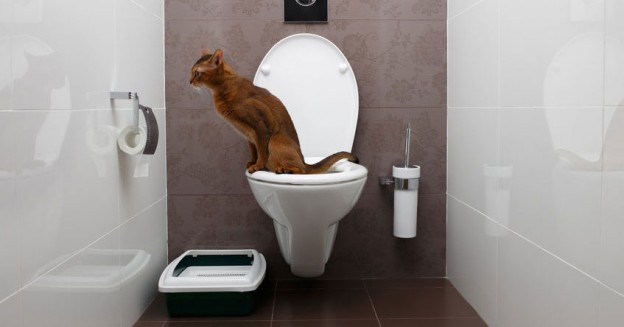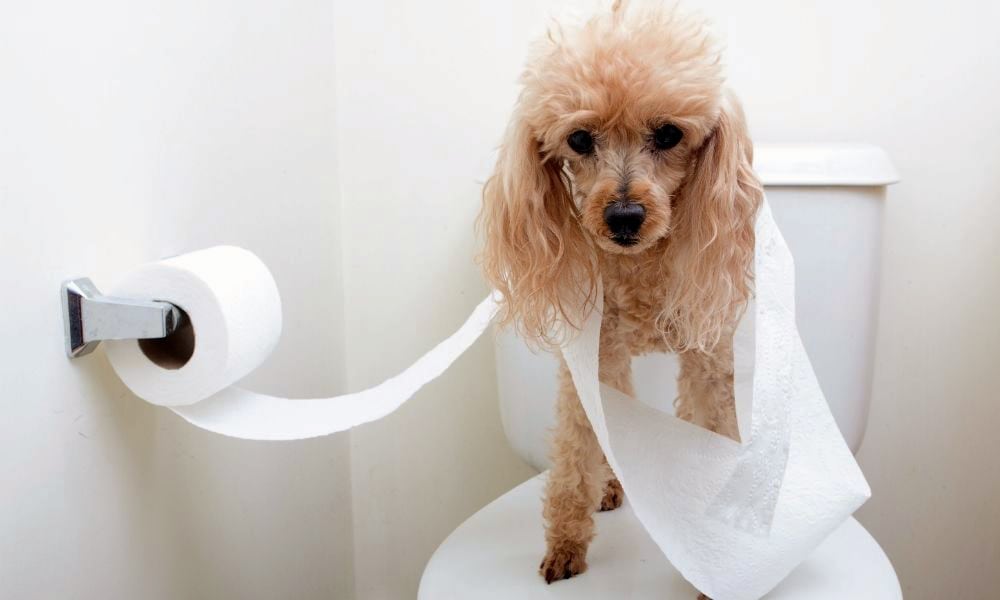Your Risks of Flushing Animal Waste Down the Toilet
Your Risks of Flushing Animal Waste Down the Toilet
Blog Article
Each person has their unique notions on the subject of Don't Flush Your Pets Poo Down The Loo, Vet Warns.

When it pertains to taking care of waste, particularly animal waste, lots of people frequently turn to the hassle-free option of flushing it down the bathroom. Nevertheless, this apparently simple remedy can have major consequences for the setting and public health. In this article, we'll explore why flushing animal waste down the bathroom is a poor concept and give different approaches for appropriate disposal.
Intro
Appropriate waste disposal is vital for preserving environmental sustainability and public health. While it might seem harmless to flush animal waste down the toilet, it can cause various concerns, both for the environment and human health.
Dangers of flushing animal waste
Ecological impact
Purging pet waste presents harmful bacteria and microorganisms right into waterways, which can negatively affect marine ecological communities. These pathogens can infect water resources and damage aquatic life, interfering with delicate environments.
Public health issues
Animal waste has unsafe bacteria such as E. coli and Salmonella, which can present major health risks to human beings. Purging pet waste down the commode can pollute water products, bring about the spread of diseases and infections.
Alternatives to flushing
Rather than purging animal waste down the toilet, there are several different disposal techniques that are a lot more eco-friendly and sanitary.
Composting
Composting animal waste is an environment-friendly way to take care of it. By composting, organic matter is broken down into nutrient-rich soil, which can be used to fertilize yards and plants.
Land fill disposal
Throwing away animal waste in a landfill is another choice. While not as environmentally friendly as composting, it is a more secure choice to flushing, as it stops the contamination of water resources.
Pet dog garbage disposal systems
There are specific animal garbage disposal systems readily available that securely and hygienically deal with animal waste. These systems often use enzymes to break down waste and eliminate odors.
Steps to proper animal garbage disposal
To ensure appropriate disposal of animal waste, follow these actions:
Scooping and nabbing waste
Routinely scoop and bag pet waste using eco-friendly bags. This protects against waste from contaminating the setting.
Using marked waste containers
Dispose of bagged animal waste in designated waste bins, such as garden compost bins or garbage dump bins. Stay clear of flushing it down the bathroom whatsoever prices.
Cleansing litter boxes and animal locations frequently
Routinely tidy can and pet locations to avoid the build-up of waste and germs. Usage pet-safe cleansing items to maintain health.
Benefits of proper disposal techniques
Embracing correct disposal approaches for animal waste provides several advantages:
Lowered environmental pollution
Proper disposal approaches minimize the risk of environmental pollution, securing waterways and environments from contamination
Decreased risk of water contamination.
By avoiding flushing pet waste down the bathroom, the danger of water contamination is dramatically lowered, safeguarding public health.
Boosted cleanliness and hygiene
Correct disposal approaches advertise far better sanitation and health, developing a much safer setting for both people and pets.
Conclusion
Finally, flushing animal waste down the commode is damaging to the atmosphere and public health. By taking on alternative disposal approaches and complying with correct waste monitoring techniques, we can minimize the adverse impact of pet waste and contribute to a cleaner, healthier earth.
What To Do With Dog Poo – The Do's And Don'ts Of Disposing Of Faeces
Dog poo bins
Some councils provide dedicated dog waste bins in popular dog-walking areas that can take dog poo that has been bagged but you can legally dispose of dog waste in any public litter bin, as long as it is securely bagged. This also applies to your wheelie bin at home.
Do not flush
Water companies do not recommend flushing dog faeces down the toilet because certain parasites can survive the water processing treatment and are potentially harmful to humans. You should also never consider flushing dog poo that has been bagged down the toilet as the bags will not break down and instead create severe blockages in the sewage system.
In the woods
The Forestry Commission promotes a ‘stick and flick’ method for dealing with waste in the woods. This means finding a stick and using it to flick any poo from off the path so that it is out of the way of other walkers. You could also bury it as long as it is not in an area where there might be livestock.
Livestock
Parasites found in dog poo can be transmitted to livestock if they inadvertently eat infected faeces that has been left on grazing land. This could result in the death of sheep or abortion in cattle so you should always make sure you pick up your dog’s waste in fields where livestock could be present.

Routinely tidy can and pet locations to avoid the build-up of waste and germs. Usage pet-safe cleansing items to maintain health.
Benefits of proper disposal techniques
Embracing correct disposal approaches for animal waste provides several advantages:
Lowered environmental pollution
Proper disposal approaches minimize the risk of environmental pollution, securing waterways and environments from contamination
Decreased risk of water contamination.
By avoiding flushing pet waste down the bathroom, the danger of water contamination is dramatically lowered, safeguarding public health.
Boosted cleanliness and hygiene
Correct disposal approaches advertise far better sanitation and health, developing a much safer setting for both people and pets.
Conclusion
Finally, flushing animal waste down the commode is damaging to the atmosphere and public health. By taking on alternative disposal approaches and complying with correct waste monitoring techniques, we can minimize the adverse impact of pet waste and contribute to a cleaner, healthier earth.
What To Do With Dog Poo – The Do's And Don'ts Of Disposing Of Faeces
Dog poo bins
Some councils provide dedicated dog waste bins in popular dog-walking areas that can take dog poo that has been bagged but you can legally dispose of dog waste in any public litter bin, as long as it is securely bagged. This also applies to your wheelie bin at home.
Do not flush
Water companies do not recommend flushing dog faeces down the toilet because certain parasites can survive the water processing treatment and are potentially harmful to humans. You should also never consider flushing dog poo that has been bagged down the toilet as the bags will not break down and instead create severe blockages in the sewage system.
In the woods
The Forestry Commission promotes a ‘stick and flick’ method for dealing with waste in the woods. This means finding a stick and using it to flick any poo from off the path so that it is out of the way of other walkers. You could also bury it as long as it is not in an area where there might be livestock.
Livestock
Parasites found in dog poo can be transmitted to livestock if they inadvertently eat infected faeces that has been left on grazing land. This could result in the death of sheep or abortion in cattle so you should always make sure you pick up your dog’s waste in fields where livestock could be present.

Hopefully you enjoyed reading our piece on Should you flush animal waste down the toilet. Thank you so much for taking the time to browse our blog. Sharing is nice. Helping others is fun. Thanks a lot for being here. Kindly check our website back soon.
Book Maintenance Report this page